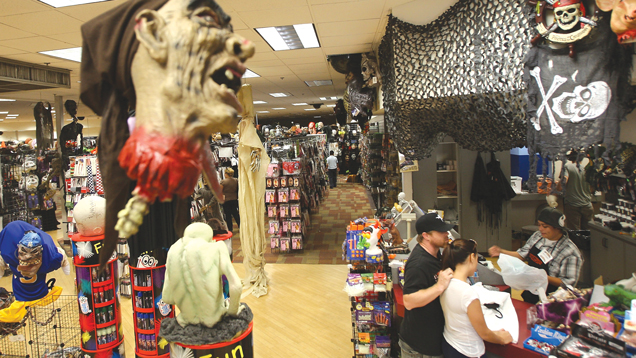Avoiding consumer mistakes on Halloween
 CREDIT: DAVID MCNEW / GETTY IMAGES NEWS / THINKSTOCK
CREDIT: DAVID MCNEW / GETTY IMAGES NEWS / THINKSTOCKBe a smart shopper this Halloween season by avoiding temporary shops that sometimes sell low quality products.
Shopping for a Halloween costume can be an enjoyable experience, but some retailers can spoil the fun.
The Better Business Bureau (BBB) released a tip sheet titled BBB’s Halloween Tips: Pop-up Store Frights and Web Entanglements to help protect consumers from making bad spending decisions.
The press release reports that consumers are projected to spend $1.5 billion this Halloween season, making consumers looking for Halloween products an easy target for retailers both online and in-store.
Deborah Brady from BBB said the main threats to consumers on Halloween are pop-up shops and online retailers.
Pop-up shops are temporary stores that often set up in untraditional locations like warehouses after obtaining a short term lease. Brady said that as long as they have a business license there are no regulations stopping them from setting up shop in the city.
Pop-up shops often sell low quality products or defective ones, and many customers may have problems getting a refund or exchanging the product if they purchased it from one of these pop-up shops.
“If consumers don’t return [the products] before Halloween it’s likely that the store isn’t there anymore,” Brady said.
Brady also added that stores are not required by law to have a return policy. The law only regulates that a retailer must display what their return or exchange policy is and to follow it. Brady said the only time a retailer has to allow for a return or exchange is if the product is defective.
Brady said she takes a picture of a store’s return policy in case she needs to make an exchange or return at a later date.
Another area of concern for Halloween shoppers is online stores. Much like pop-up shops, online retailers are guilty of often providing low quality products to consumers. With the added difficulty of having to ship the defective product back to the supplier consumers can end up spending money on an unwearable costume.
Brady said the best option for consumers when shopping is to use a credit card when buying from pop-up shops or to use PayPal when available when shopping online. That way consumers can still go through their credit card company and put in a dispute if the store is no longer available.
Brady suggests students avoid the potential hassles associated with pop-up shops and online stores by making your own costume instead. She recommends getting creative with some D.I.Y projects or checking out some second-hand shops like Salvation Army to find a unique costume idea. But most importantly Brady said to have fun and be safe this Halloween.














